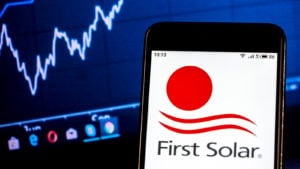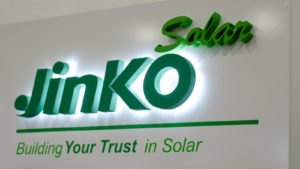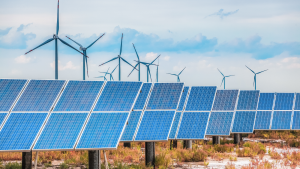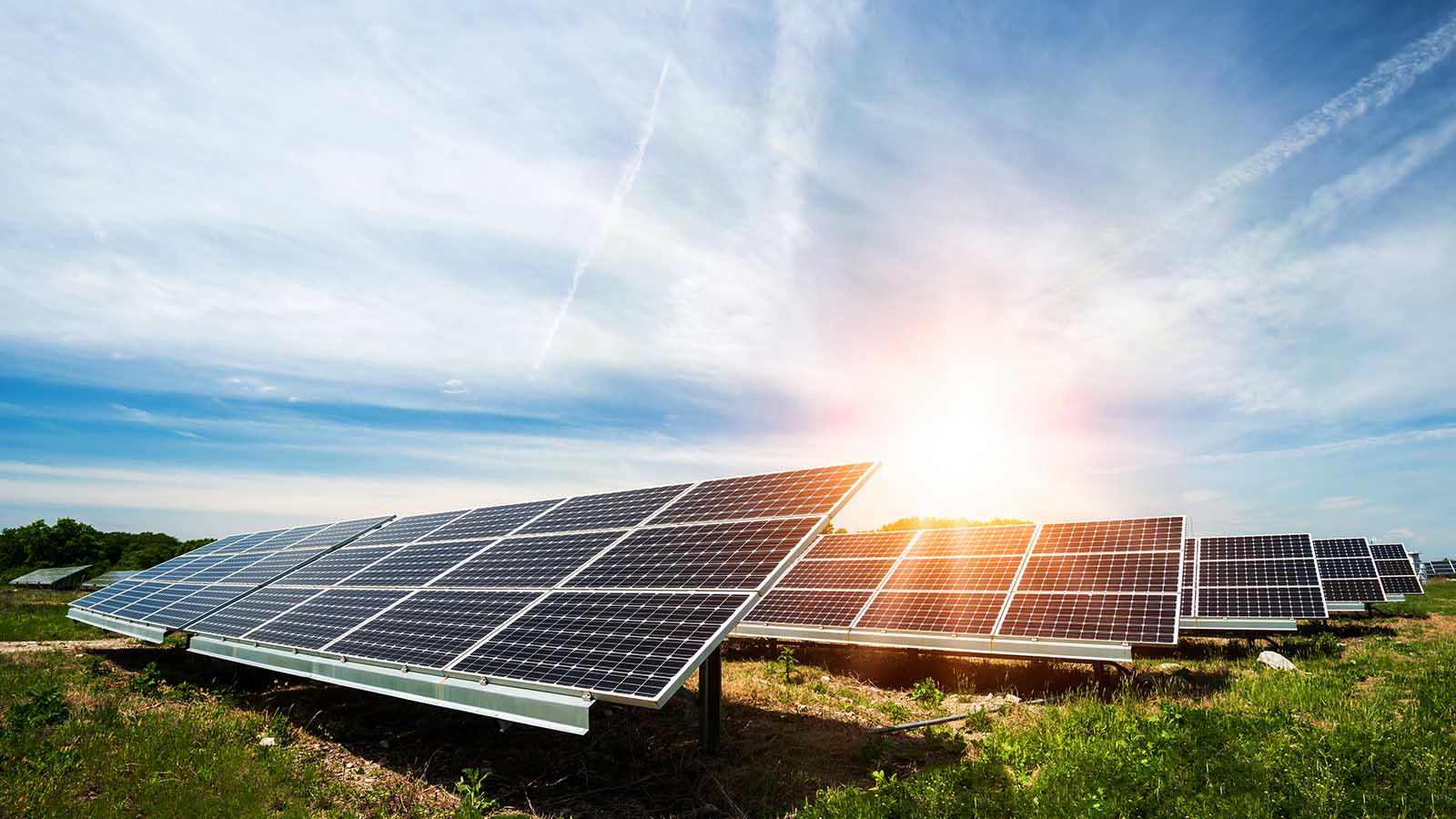A new United Nations report on climate change puts renewed focus on the growing influence of green energy and what seems to be the massive potential of solar stocks.
The U.N. report released in March says there’s “a rapidly closing window of opportunity to secure a livable and sustainable future for all” by cutting harmful emissions. The report clarifies that it is possible to create a more sustainable world and stabilize the climate if we act quickly.
That’s where green energy options like solar stocks come in. Solar power plants can take the burden off of fossil fuels to create and store electricity for the power grid. As many as 22 states, plus the District of Columbia, are aiming to provide 100% renewable energy or carbon-free electricity by 2050.
The newly passed Inflation Reduction Act makes solar power even more appealing, as the law provided $10 billion in new energy tax credits.
To find the best solar stocks to buy to take advantage of this trend, I suggest you use the Portfolio Grader to identify top-rated solar stocks. The Portfolio Grader evaluates and grades stocks on an “A” through “F” scale, based on earnings performance, momentum, fundamentals and quantitative measurements.
Not every solar stock is a winner. But these seven picks should set you on the right path.
| FSLR | First Solar | $211.10 |
| CSIQ | Canadian Solar | $38.62 |
| JKS | JinkoSolar | $47.90 |
| MAXN | Maxeon Solar Technologies | $24.83 |
| SEDG | SolarEdge Technologies | $284.52 |
| ENPH | Enphase Energy | $195.99 |
| ARRY | Array Technologies | $18.47 |
First Solar (FSLR)

First Solar (NASDAQ:FSLR) is one of the most well-known of the solar stocks and it’s one of the biggest and most stable, with a market capitalization of more than $22 billion.
First Solar is the biggest U.S.-based solar manufacturer, and it’s working on getting even bigger. The company announced plans to invest $1.2 billion to scale production of its photovoltaic (PV) solar modules. With the expansion, First Solar says it should be able to prove more than 10 gigawatts (10 billion watts) of power by 2025. To put that in perspective a single gigawatt of power can service about 1.1 million homes.
UBS analyst Jon Windham recently increased his price target on FSLR stock from $140 to $250 per share, saying the company should be “the most significant beneficiary” of the Inflation Reduction Act.
FSLR stock is up 40% so far this year, and it has an “A” rating in the Portfolio Grader.
Canadian Solar (CSIQ)

There are some interesting solar stocks outside the U.S. as well. One of those is Canadian Solar (NASDAQ:CSIQ), which was founded in 2001 and has since become one of the biggest renewable energy companies in the world.
Canadian Solar builds and connects over 6.6 gigawatts of solar power in more than 20 countries. It currently has 800 megawatts of projects in operation, with another 5.3 gigawatts under construction and 18.5 gigawatts of projects in its pipeline.
Earnings for the fourth quarter of 2022 came in a $1.97 billion in revenue, which was an increase of nearly 29% from a year ago and barely topped analysts’ expectations. Earnings per share was $1.11, which was better than the 96-cent EPS that the Street expected.
CSIQ stock is up 24% so far this year, and has an “B” rating in the Portfolio Grader.
JinkoSolar (JKS)

From its headquarters in Shanghai, JinkoSolar (NYSE:JKS) serves customers in 160 countries around the world. It’s the largest solar panel producer in the world, with Canadian Solar coming in at No. 2.
With production facilities in the U.S., China, Malaysia and Vietnam, the company expects to have the capacity for its solar cells to reach 75 gigawatts by the end of 2023. And it believe its solar modules will have a capacity of 90 gigawatts by the end of the year.
China is far in front of the rest of the world in solar power. As of last year, the company had nearly 400 gigawatts of solar energy production online.
That’s keeping the profits flowing in. Revenue in the fourth quarter was $30.4 billion, which was an improvement of 85% from a year ago.
JKS stock is up 16% so far this year, and it has a “B” rating in the Portfolio Grader.
Maxeon Solar Technologies (MAXN)

Maxeon Solar Technologies (NASDAQ:MAXN) may be a relatively new player in the solar game, but it has roots that have been around for a while.
The company spun off from SunPower Corporation (NASDAQ:SPWR) in 2020. That allowed SunPower to focus on being a distributed generation energy services company, while Maxeon honed on manufacturing solar panel.
But the companies are still working together. they recently announced an extension of an agreement to keep SunPower supplied with Maxeon solar panels through 2025.
Earnings for the fourth quarter were $323.5 million, an increase of 45% from a year ago.
MAXN stock is up 53% so far this year, and carries a “B” rating in the Portfolio Grader.
SolarEdge Technologies (SEDG)

An Israeli company, SolarEdge Technologies (NASDAQ:SEDG) makes PV inverters, power optimizers, PV monitoring, software tools and electric vehicle chargers. It caters to homeowners, businesses that want to reduce their carbon footprint, as well as installers.
The company has a presence in 36 countries around the world, and shipped more than 40 gigawatts of energy systems since its was founded in 2006.
The company said it recorded record revenues in 2022 from its solar segment ($2.9 billion), and overall revenue of $3.1 billion, which was also a high. Full-year non-GAAP earnings per share came in at $5.95.
SEDG stock isn’t up nearly as much so far this year as other names on this list – for the year, it’s up just 3%. But analysts are bullish about its potential as it has a price target of $366. That shows potential growth in the stock price of 25%.
SEDG stock has a “B” rating in the Portfolio Grader.
Enphase Energy (ENPH)

I really like Enphase Energy (NASDAQ:ENPH) as a top growth stock regardless of sector. While it did better than the market in 2022, so far the stock hasn’t really taken hold as much as its shareholders would like.
Enphase stock is down 22% so far this year and investors took some profits on fears (misguided, in my view) that the company’s growth will slow this year.
Maybe it will. But it will not hurt as much as the bears may lead you to believe. Enphase had top-line growth 69% last year, and it hits top-end analyst estimates of $3.64 billion in 2023. It will still have 56% growth to show for it at the end of the year. I’ll take that any day.
It’s more likely that investors are going to make their way back to Enphase, which has the advantage of being an American company and being able to benefit from clean energy incentives passed by Congress and the White House.
ENPH stock has a “B” rating in the Portfolio Grader.
Array Technologies (ARRY)

Solar panels are great, if you’re trying to capitalize on clean energy. But they don’t do anyone any good if they’re not pointing where they need to point – toward the sun.
Array Technologies (NASDAQ:ARRY) is a New Mexico-based maker of utility-scale solar tracker technology, or the equipment needed for solar panels to change their orientation throughout the day to follow the sun across the sky. Its markets include North America, Australia, Brazil, Europe and South Africa.
The company is seeing rapid growth, with revenue in the fourth quarter coming in at $402.1 million, or 83% higher than a year ago. Full-year revenue of $1.63 billion was an increase of 92% from 2021.
The company is forecasting 2023 revenue to be in a range of $1.8 billion to $1.95 billion, while analysts’ consensus estimate is for $1.89 billion.
ARRY stock is up only 2% in 2023, but analysts’ consensus price target shows a 35% runway of growth. Array has a “B” rating in the Portfolio Grader.
On the date of publication, Louis Navellier held CSIQ and ENPH. Louis Navellier did not hold (either directly or indirectly) any other positions in the securities mentioned in this article.
The InvestorPlace Research Staff member primarily responsible for this article did not hold (either directly or indirectly) any positions in the securities mentioned in this article.
